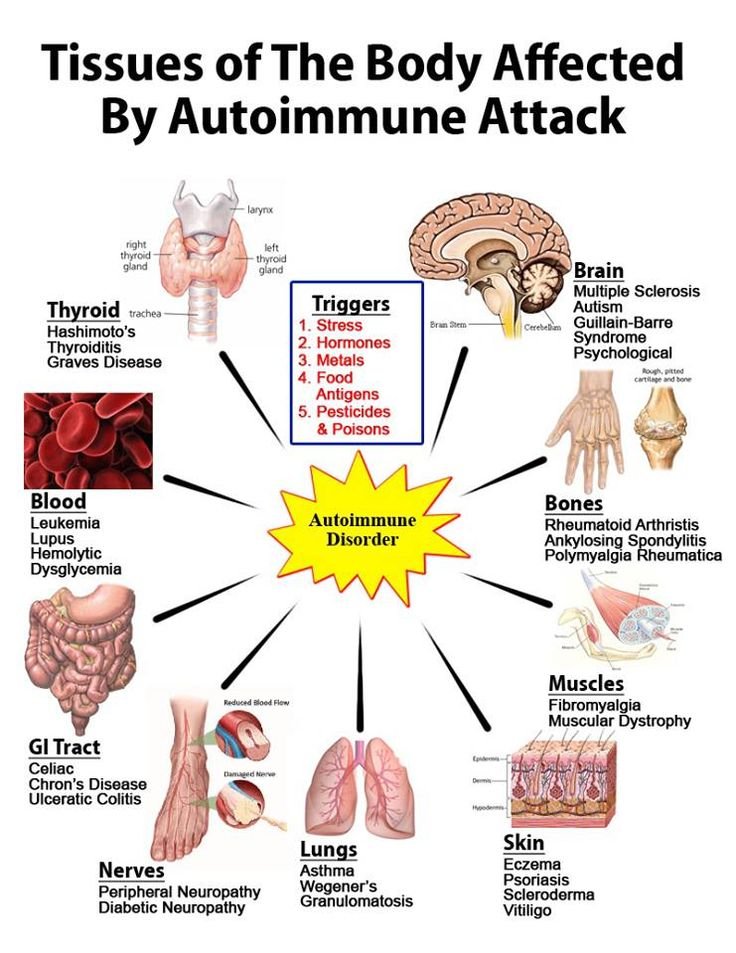What is autoimmunity?
The immune system is designed to identify and attack foreign organisms within the body that cause disease (pathogens). However, sometimes the recognition process becomes confused, and begins to attack the host, causing autoimmune diseases.

figure 1. Punching yourself in the face
This seems like a complete failure of the immune system itself, much like punching yourself in the face instead of your opponents (see figure 1). However, if you look at the underlying mechanisms of immunity and how pathogens are recognised above parts of the host’s body, the extreme complexity of the system means that occasional errors seem almost inevitable.
How does the immune system normally differentiate between host cells and pathogens?
This comes down to a phenomenon called tolerance. This means that the immune system avoids reacting against your own tissues, it is said to be tolerant of them.
The main cells of the immune system that need to be tolerised are T lymphocytes (or T cells). These cells are responsible for recognising foreign pathogens and then coordinating an immune response through activating many others white blood cells. It is the subsequent activation of other white blood cells (such as B lymphocytes and macrophages), that actually kills the pathogens. It is therefore critical that T lymphocytes are tolerant to your own tissues.
Although your body wants to remove any T lymphocytes that attack your own body, it does not want to get rid of cells that will recognise and kill pathogens. This is where the problems with autoimmunity arise. How does the body decide which T cells to destroy and which to keep?
The exact mechanisms are vaguely understood, yet autoimmunity can be considered a failure of self-tolerance. T cells and antibodies from B cells are directed against tissues within the body. The leading theory of how these conditions arise is known as the hygiene hypothesis. It states that a lack of exposure to diseases and infections has led to an under-stimulation of the immune system, meaning the immune system begins to attack host tissues. This is backed up by the higher prevalence of autoimmune diseases in western countries where the incidence of infection is lowest.
Who gets autoimmune diseases?
Most people will experience some kind of autoimmune reaction in their lifetime. The majority of these are short-lived and self-resolving. Only in around 5% of individuals are the reactions chronic, debilitating and even life-threatening. A summary of some of the different autoimmune conditions and areas that they affect is shown in figure 2.

figure 2. Summary of autoimmune diseases
There are various genetic and environmental factors that can predispose people to autoimmune conditions, but the exact cause or trigger is largely unknown. Additionally, some of the diseases can be triggered by certain infections.
Can autoimmune diseases be treated?
Not very well, unfortunately. Many of the diseases resolve themselves, but for chronic conditions treatment is largely ineffective and they can never be eradicated. For example, insulin can be used to manage type 1 diabetes, but there is no cure.
As it you have probably realised form this article, there are still many unknowns around autoimmunity and how it actually arises. Hopefully with further research and understanding these diseases will become treatable and even curable.
References:
Autoimmunity
Tolerance
White blood cells
Antibodies
Hygiene hypothesis
Welcome back @ovij!
Thank you! I have been away at uni so haven't had enough time to collect the information for a new post. I hope that you enjoyed it.
This was the first post I've read on Steemit, just got my account today.
@ovji, you are awesome! Please keep up the great work! I suffer from multiple autoimmune disorders and most people don't know what that is. I've had people confusing that with HIV. I would like to start blogging and writing content about the topic soon! Again, thanks for the great post!
thanks for useful post,,,shareing is caring
No problem, glad you found it useful!
I went to one nutriopathic lecture where they suggested that many autoimmune diseases were a result of a previous infection from a stealth, or long term infection. This is the same way that lymes disease is a stealth pathogen that causes an autoimmune disease. The lecturer spoke of having strong results when treating autoimmune diseases similarly to ways you would treat a stealth pathogen infection and that he had had much success with this.
Do you have an experience with this?
This is another hypothesis of how autoimmune diseases arise known as the cryptic infection hypothesis. As far as I am aware the current evidence is now swaying in favour of the hygiene hypothesis as opposed to the cryptic infection hypothesis.
Here is a link to more information on this hypothesis: https://www.ncbi.nlm.nih.gov/pubmed/12848953
welcome back @ovij, always quality posts!
Thank you very much, I am glad you like them.